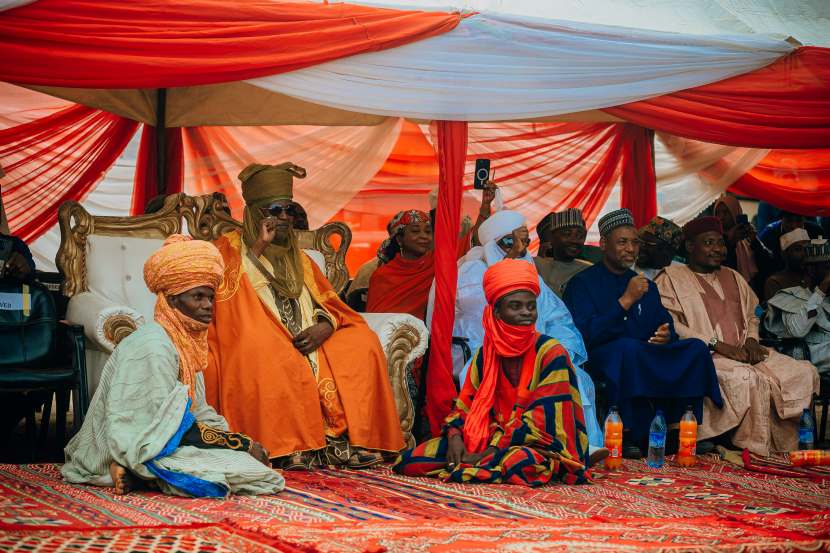By Ghana News
Copyright ghanamma

Published on
September 28, 2025
Ghana tourism industry, once celebrated as a vital pillar of economic development and cultural diplomacy, is currently experiencing a concerning decline. The Africa Tourism Research Network (ATRN) has raised alarm over this downward trajectory, pointing to inadequate commitment, absence of clear direction, and the lack of consistent domestic marketing by tourism authorities. Ghana, which has long been recognized for its rich cultural heritage, diverse attractions, and potential as a leading destination in Africa, now risks losing its competitive edge on the global tourism stage.
The realities were highlighted in a recent press release shared with the Ghana News Agency. The release, signed by Emmanuel Frimpong, President of ATRN, outlined that engagements with stakeholders in six different regions painted a troubling picture. Hotels, restaurants, and attraction sites were reported to be struggling to attract adequate numbers of visitors. The network emphasized that a robust tourism sector requires vision, promotion, and leadership. Unfortunately, the lack of sustained leadership direction and a unified marketing strategy has left the sector underutilized while competing African destinations accelerate their efforts.
Stakeholder Insights Across Regions
The ATRN’s research, which involved conversations with operators across six regions, revealed daily struggles within the industry. Hotel owners expressed difficulty in sustaining operations, citing low occupancy rates and inconsistent visitor inflows. Restaurants that once thrived on both local traffic and international guests reported reduced patronage, while many cultural and natural attraction sites noted declining footfall that threatened their survival. These findings indicate not isolated issues but a widespread slowdown affecting the fabric of Ghana’s tourism ecosystem.
Operators stressed that the absence of structured campaigns and bold promotional drives has left them vulnerable in a rapidly evolving global market. While Ghana remains home to world-acclaimed heritage such as Cape Coast Castle, Elmina Castle, Kakum National Park, and thriving cultural festivals, the visibility of these assets has weakened, failing to generate the attention they deserve on both domestic and international platforms.
Tourism as a Pillar of Growth
For years, tourism in Ghana has been hailed as a significant player in economic diversification, job creation, and cultural diplomacy. The sector has the ability to employ thousands, boost hospitality businesses, and spotlight Ghana as a premier African destination. The network highlighted that tourism is not just about leisure but also about shaping a national identity, attracting conversations around history, and opening doors for global citizens to connect with Ghana’s story.
Despite this potential, recent evidence suggests that Ghana is falling behind. Countries such as Rwanda, Kenya, and South Africa continue to launch bold policies and well-funded campaigns that position their unique offerings at the forefront of global tourism platforms. Their efforts highlight strong leadership and a strategic vision that Ghana’s approach currently lacks.
The Role of Vision and Leadership
Tourism thrives on more than just attractions; it requires collaboration, brand cohesion, and continuous storytelling. According to the ATRN, the absence of a strong vision has created a vacuum in Ghana’s sector. Without sustained leadership direction, operators have been left to their own limited means of promotion, which remains fragmented and inconsistent.
Leadership, in this context, goes beyond policy creation to include building narratives around Ghana’s identity. Countries making strides in tourism have invested not only in infrastructure but also in branding their destinations with precision and creativity. Ghana’s leadership, the ATRN noted, must urgently step in to unify stakeholders, provide long-term policy roadmaps, and actively drive both domestic and international marketing campaigns.
Lack of Domestic Marketing Strategy
One of the most concerning revelations from ATRN’s statement was the lack of effective domestic marketing. The Ghanaian population itself represents an immense market of potential travelers. Promotion of internal tourism can stabilize the industry, bringing foot traffic to lesser-known attractions and sustaining businesses that might otherwise close due to reliance on international arrivals.
However, marketing efforts within Ghana have been minimal and sporadic. The campaign spirit that once carried initiatives such as Year of Return, which attracted thousands of African diaspora visitors in 2019, appears to have faded, leaving no ongoing domestic equivalent to maintain momentum. With a strong focus on external travelers, internal tourism opportunities have remained underdeveloped.
Comparative Gap With Other African Nations
The ATRN emphasized that while Ghana slows, its counterparts on the continent surge ahead with clear, coordinated campaigns. Rwanda, with its gorilla trekking experiences, has positioned itself as a model of eco-tourism. Kenya continues to draw global attention with its safari branding, while South Africa’s diversity in culture, nature, and adventure has kept it at the forefront of African tourism promotion.
These examples underline how aggressive marketing, coupled with structured leadership, can place nations on the global tourism map. The gap between these efforts and Ghana’s relatively slow response underscores the urgency needed in reversing the decline before the sector loses more of its ground.
Economic and Social Implications
The downturn in Ghana’s tourism directly impacts the economy. Reduced visitor inflow translates to fewer jobs in hotels, airlines, logistics, and cultural enterprises. Restaurants and hospitality hubs see fewer customers, and artisans producing crafts or cultural merchandise face shrinking markets. The chain effect reduces income, tax revenues, and foreign exchange potential.
Beyond economics, the social implications are equally serious. Tourism represents an opportunity to project Ghana’s story globally. Each visitor encounter is a chance to tell narratives of heritage, resilience, creativity, and unity. A weaker tourism industry reduces Ghana’s opportunity for cultural diplomacy and minimizes its role in shaping African identity on the world stage.
The Call for Action
The ATRN’s statement serves as a wake-up call for urgent transformation. If Ghana intends to reclaim its place as a leader in African tourism, deliberate steps are required. Sustained investment in marketing campaigns, tourism infrastructure, and human resource training must be pursued. Additionally, regional collaboration across West Africa could promote cross-border tourism packages that attract larger visitor groups.
More critically, the role of leadership cannot be understated. Policy leadership must emerge with bold vision and direction, ensuring Ghana’s tourism potential is no longer underutilized but fully harnessed for development, cultural pride, and economic sustainability.
The decline in Ghana’s tourism industry, as highlighted by the Africa Tourism Research Network, serves not as a discouragement but as a reminder of the vast untapped potential still within reach. The road to revival is clear: structured leadership, visionary strategies, and sustained promotion are the foundations on which a thriving tourism sector must be built. Ghana’s cultural richness, combined with its natural charm, still holds the power to attract the world. The challenge now lies in building the coordinated leadership and promotion required to transform potential into prosperity.



